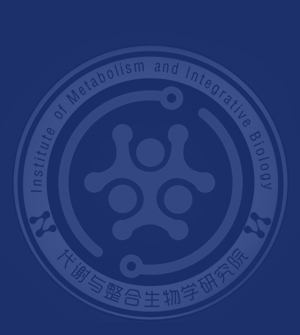

 Professor
Professor
Tel: 0086-21-31246611
Email: wanghy@fudan.edu.cn
Office Address: Room A609, Building of Life Sciences, Fudan University
Personal Profile
2018- Deputy-Dean, Institute of Metabolism and Integrative Biology, Fudan University
2015- Executive Director, Reproductive and Developmental Research Institute, Fudan University
2012 Chief Scientist of 973 program (2012CB945400)
2010 National Science Fund for Distinguished Young Scholars (2010, 81025003)
2007- Professor, doctoral supervisor at the School of Life Sciences, Fudan University
2002-2007 Research Associate at Center for Research on Reproduction & Women’s Health, Upenn, USA
1999-2002 Post-doctoral fellow at Monell Center, Philadelphia, USA
1996-1999 Ph.D. in Mol. Genet. at Shanghai Brain Research Institute, Chinese Academy of Science
Research Interests
Our laboratory is focused on the investigation of the genetic causes and molecule mechanisms of the occurrences of major birth defects including congenital heart disease and neural tube defects. Our research mainly involves detection and functional analysis of genome structural variation and disease-causing gene mutations, mechanistic basis of epigenetic modification on the regulation of gene expression. We also aim to elucidate the genetic basis of metabolic imbalance such as folic acid deficiency, as well as the molecular mechanisms of how it affects developmental signaling pathways leading to birth defects.
Team Member
Honors and Awards
2016 First prize of Natural Science Award of National Science and Technology Award for Maternal and Child Health (the first accomplisher), 'Mechanism of birth defects caused by de novo mutations'
2015 First prize of Natural Science of Ministry of Education (the first accomplisher) , 'Genetic analysis of major birth defects in Chinese population'
2013 National 5.1 Labor Award, Chinese Government
2010 The Seventh China Youth Female Scientist Award, Chinese Government
2009 Special Research Presentation Award, Association of Chinese Geneticists in America, Honolulu, USA
2004/2005/2006 President’s Presenter Award in American Society for Gynecologic Investigation
Selected Publications
Wang YL, Cao XT, Liu P, Zeng WJ, Peng R, Shi Q, Feng K, Zhang PZ, Sun HR, Wang CJ* and Wang HY*. KCTD7 mutations impair the trafficking of lysosomal enzymes through CLN5 accumulation to cause neuronal ceroid lipofuscinoses. Sci Adv. 2022 Aug 5;8(31):eabm5578.
Li C#, Li HD#, Yao XY, Liu D, Wang YM, Huang XY, Yang ZZ, Tao WF, Zhao JY* and Wang HY*. Master microRNA-222 regulates cardiac microRNA maturation and triggers Tetralogy of Fallot. Signal Transduct Target Ther. 2022 May 30;7(1):165
Qin Y#, Du YS#, Chen LQ, Liu YY, Xu WJ, Liu Y, Li Y, Leng J, Wang YL, Zhang XY, Feng JF, Zhang F, Jin L, Qiu ZL, Gong XH* and Wang HY*. A recurrent SHANK1 mutation implicated in autism spectrum disorder causes autistic-like core behaviors in mice via downregulation of mGluR1-IP3R1-calcium signaling. Mol Psychiatry. 2022 Jul;27(7):2985-2998
Zhao Y#, Chen DY#, Tang JP, Zheng YF*, Qi J*, Wang HY*. Parental folate deficiency induces birth defects in mice accompanied with increased de novo mutations. Cell Discov. 2022 Feb 22;8(1):18.
Kuang LL, Jiang YC, Chen SX, Su K, Peng R, Yang XY*, Wang HY*. Rare variants in TULP3 abolish the suppressive effect on sonic hedgehog signaling and contribute to human neural tube defects. Genes Dis. 2021 Dec 8;9(5):1174-1177.
Wang YM#, Zheng YF#,*, Yang SY, Yang ZM, Zhang LN, He YQ, Gong XH, Liu D, Finnell RH, Qiu ZL, Du YS, Wang HY*. MicroRNA-197 controls ADAM10 expression to mediate MeCP2’s role in the differentiation of neuronal progenitors. Cell Death & Differentiation 2019, 26: 1863-1879.
Chen ZZ#, Lei YP#, Zheng YF#, Aguiar-Pulido V, Elizabeth R, Peng R, Jin L, Zhang T*, Finnell R*, Wang HY*. Threshold for neural tube defect risk by accumulated singleton loss-of-function variants. Cell Res, 2018, 28: 1039-1041.
Kim J#, Lei YP#, Guo J, Kim SE, Wlodarczyk BJ, Cabrera RM, Lin Y, Nilsson TK, Zhang T, Ren AG, Wang LL, Yuan ZW, Zheng YF, Wang HY*,Finnell R*. Formate rescues neural tube defects caused by mutations in Slc25a32. Proc Natl Acad Sci U S A. 2018, 115: 4690-4695.
Wang D#, Wang F#, Shi KH#, Tao H, Li Y, Zhao R, Lu H, Duan WY, Qiao, B, Zhao SM*, Wang HY*,Zhao JY*. The Circulating Folate Decrease Induced by a Fidgetin Intronic Variant Is Associated with Reduced Congenital Heart Disease Susceptibility. Circulation, 2017, 135: 1733-1748.
Zhao JY#, Qiao B#, Duan WY#, Gong XH, Jiang SS, Ye ZZ, Wang J, Gu ZY, Shen HB, Shi KH, Sun SN, Huang GY*, Jin L*, Wang HY*.Genetic variants reducing MTR gene expression increase risk of congenital heart disease in a Chinese population. Eur Heart J, 2014, 35(11): 733-742.
Zhao JY#, Yang XY#, Shi KH#, Sun SN, Hou J, Ye ZZ, Wang J, Duan WY, Qiao Bin, Chen YJ, Shen HB, Huang GY, Jin L, Wang HY*.A Functional Variant in the Cystathionine b-Synthase Gene Promoter Significantly Reduces Congenital Heart Disease Susceptibility in Han Chinese Population. Cell Res, 2014, 23: 242-253.
Zhao JY, Yang XY, Gong XH, Gu ZY, Duan WY, Wang J, Ye ZZ, Shen HB, Shi KH, Hou J, Huang GY, Jin L, Qiao B*, Wang HY*. A functional variant in MTRR intron-1 significantly increases risk of congenital heart disease in Han Chinese population. Circulation, 2012, 125: 482-490.
Lei YP, Zhang T, Li H, Wu BL, Jin L, Wang HY*.VANGL2 Mutations Identified in Human Cranial Neural-Tube Defects. N Engl J Med, 2010, 362: 2232-2235.
Wang H, Parry S, Macones G, Sammel MD, Kuivaniemi H, Tromp G, Halder I, Shriver MD, Romero R, Strauss JF. A Functional SNP in the Promoter of the SERPINH1 Gene Encoding Hsp47 Increases Risk of Preterm Premature Rupture of Membranes and Preterm Birth in African-Americans. Proc Natl Acad Sci U S A. 2006, 103: 13463-13467.
Wang H, Parry S, Macones G, Sammel MD, Ferrand PE, Kuivaniemi H, Tromp G, Halder I, Shriver MD, Romero R, Strauss JF. Functionally significant SNP MMP8 promoter haplotypes and preterm premature rupture of membranes (PPROM). Hum Mol Genet, 2004, 13: 2659-2669.
Wang HY, Zhang FC, Gao JJ, Fan JB, Liu P, Zheng ZJ, Xi H, Sun Y, Gao XC, Huang TZ, Ke ZJ, Guo GR, Feng GY, Breen G, St Clair D, He L. Apolipoprotein E is a genetic risk factor for fetal iodine deficiency disorder in China. Mol Psychiatry, 2000, 5: 363-368.




 Fudan Email
Fudan Email Fudan Ehall
Fudan Ehall